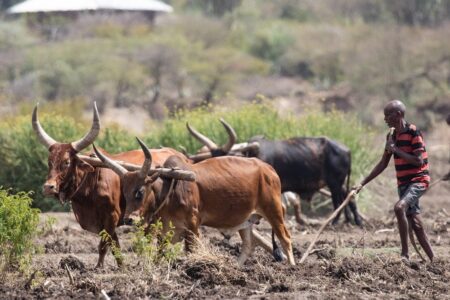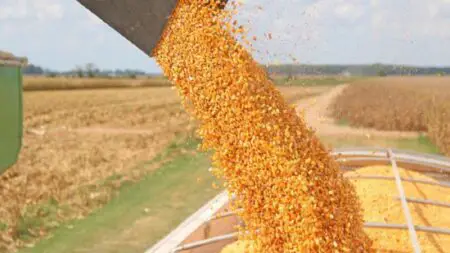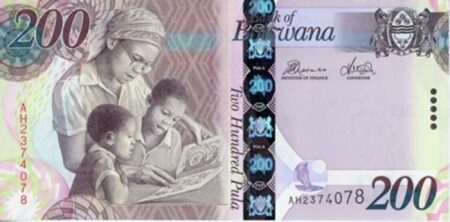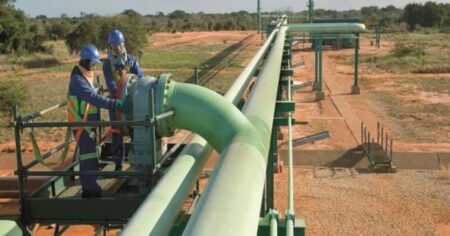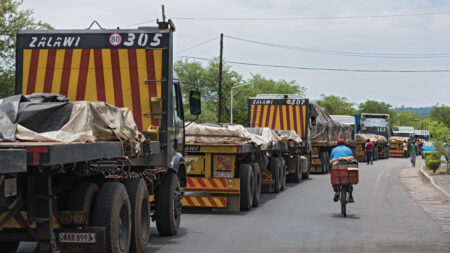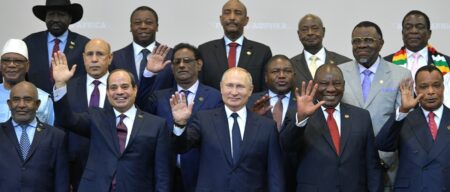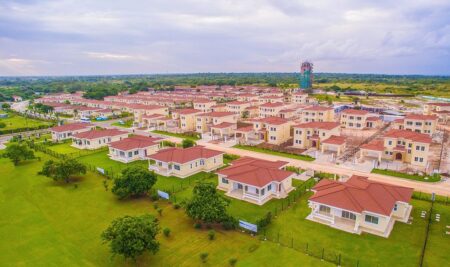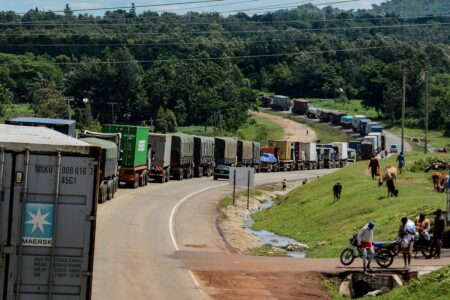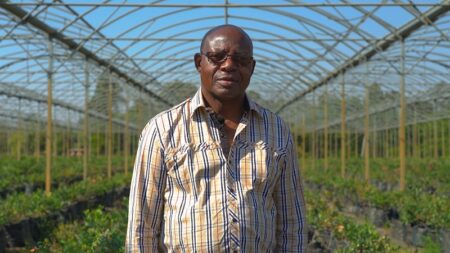- Agribusiness could drive Africa’s economic prosperity
- Dawood Al Shezawi: Why AIM Congress 2024 is the epicenter of global economic and cultural dialogues
- d.light’s 600,000 cookstoves project verified as top source of quality carbon credits
- Artificial intelligence (AI) could create a turning point for financial inclusion in Africa
- AIM Congress 2024: Catalysing global investments with awards
- Kenya’s economic resurgence in 2024
- The most stressful cities to live in 2024 exposed
- Tech ventures can now apply for the Africa Tech Summit London Investment Showcase
Browsing: premium
Africa’s human development cannot proceed until the first and most basic need—food—is met. A report by AusAID titled Improving food security in Africa reveals that over two-thirds of the population relies on agriculture for income and basic food needs. With food, fuel, and fertiliser crises that have followed the extended Russia-Ukraine crisis, the World Bank has described the current conditions in sub-Saharan Africa as “the perfect storm,” which includes the COVID-19 pandemic, skyrocketing inflation, a growing debt burden, and harsh weather.
The World Food Programme’s 2022 Global Report on Food Crises estimates that 140 million people across Africa are experiencing food insecurity on a regular basis.
With many countries facing food security issues, many nations have partnered with the World Bank to implement a series of short-, medium-, and long-term actions to combat the effects of food insecurity, such as overreliance on imports and persistent drought. These measures are also …
Zimbabwe’s potential to become the bread basket of Africa again may be possible. The country still possesses fertile soils and a favourable climate, and with the right support, the agricultural sector can be revitalized to once again become a major contributor to the country’s economy, providing food security for the nation and for Southern Africa. What is needed are investments in technology and infrastructure, support for smallholder farmers, encouraging private sector investment, and addressing climate change.
Zimbabwe has a long history of agriculture dating back to the 11th century when the Shona and Ndebele people began cultivating crops such as millet, sorghum, and corn. In the 20th century, the country became known as a major agricultural producer, particularly in the areas of tobacco, wheat, and maize (corn). The country’s fertile soils and favourable climate made it an ideal location for farming, and the government actively promoted and supported the agricultural …
- Digital technologies have enabled farmers to obtain crucial information on soil quality for nutrient levels, water levels, pests, and disease spread, captured from various sensors, satellites, and drones.
- One key area where technology can play a role in driving smart agriculture in Africa is through the use of chatbots.
- Chatbots have the potential to drive smart agriculture in Africa by improving crop yields, reducing costs, and increasing sustainability.
In Africa, where agriculture is a major contributor to the economy and a primary source of livelihood for many communities, the implementation of smart agriculture systems has a significant impact on food security and economic development. Smart agriculture refers to the use of advanced technology and data analysis to improve crop yields, reduce costs, and increase sustainability in the farming industry.
One key area where technology plays a role in driving smart agriculture in Africa is through the use of chatbots.
The …
- One of the driving forces behind nation’s economic success is the Botswana Pula (BWP), the country’s currency.
- last year the local currency fell by 8.1 per cent against the US dollar, one of the single most important currencies for the local economy as it is the trading currency for rough diamonds.
Botswana, is known for its stable democracy, strong economy and of course economic transparency. The country has been rated as the least corrupt nation in Africa, a feat that is uncommon among neighbours that fall prey to bribery and graft. One of the driving forces behind nation’s economic success is the Botswana Pula (BWP), the country’s currency.
The Pula, which means “rain” in the Setswana language, was first introduced in 1976, replacing the South African Rand. It has since maintained a strong parity against major currencies, such as the US dollar and Euro, demonstrating strength in a region that …
The Economic Community of West African States (ECOWAS) boasts of some of Africa’s largest economies, but like many economies of the world, the 15 member states of ECOWAS are facing both endemic and global challenges that could undermine the region’s economic growth in in 2023.
While two years ago in 2020, before the global pandemic struck, a majority of ECOWAS countries were enjoying the commodity boom with the region’s three of its largest economies – Nigeria, Ghana, and Côte d’Ivoire – accounting for one-fourth of Africa’s GDP.
Unfortunately, short of a change in the global economic projection, it will be a challenge for these West African countries to replicate the pre-pandemic growth. The global economic forecast paints a depressed economy in2023 and at best sluggish growth for more diversified economies, spilling over from the after math of the pandemic, the ongoing Russia-Ukraine war and widespread inflation.
A global analysis released …
The African Continental Free Trade Area (AfCFTA) could deliver far greater benefits in terms of jobs, growth, and poverty reduction than previously estimated – making it a potential game changer for Africa’s economic development if its ambitious goals are fully realized, a World Bank 2022 report indicates.
Two key points stand out in that World Bank statement, first ‘AfCFTA could deliver greater benefits…than previously estimated,’ and second, ‘if it’s ambitious goals are fully realized.’
The first point begs the question how could a continent-wide trade pact be undervalued,’ and the second is the possibility that the one trade zone might not take off as planned.
Also Read: East African SMES ready to tap into the wider African market
Let us look at the AfCFTA goals and determine whether they are indeed ambitious or just realistic and if so, let us review the hurdles that may derail AfCFTA from achieving …
The world is on the cusp of a new geopolitical order, embracing multipolarity and swiftly effacing the long-standing unipolar world that has for decades on end, placed the U.S on a pedestal as the sole dominant superpower. In the recent past this hegemonic position has been challenged by emerging global powers, led by China, Russia, Germany, U.K, South Korea, France, Japan, UAE, and several others. These countries have grown in power, asserting an independent and to some degree collective influential role, in global economic affairs and security development, thereby ushering in a new multipolar world order.
The fall of the Iron Curtain in 1989 when almost all of the communist governments of the Eastern bloc were overthrown, heralded the formal dissolution of the USSR in 1991.This marked the end of the Cold War that began shortly after World War II in 1945. This was a period of geopolitical tension between …
In the modern world, affordable housing is becoming a complex issue for many people, especially in Africa. Across the region, rapid urbanization, which has boomed over the past decade, has made affordable, decent housing challenging precipitating the emergence of informal settlements.
In the case of Tanzania, Dar es Salaam, the commercial pulse of Tanzania, is struggling to develop cities that bring inclusive growth and job opportunities for people, the Kigamboni City Project tried by failed..
A December 2015 publication by the World Bank argued that Africa could have as many as 1.2 billion urban dwellers by 2050 and 4.5 million new residents in informal settlements each year, most of whom cannot afford basic formal housing or access mortgage loans.
The informal settlements or slums is particularly pronounced in big African cities. In 2020, 24.2 percent of the global urban population lived in slums. In Sub-Saharan Africa, the slum …
Africa is huge continent with untapped potential. With the rest of the world opening up for the best international trade and travel relations, Africa is learning and following the same path, with countries such as Uganda, Kenya and Rwanda easing entry restrictions by issuing visa on arrival and hence turning themselves towards open borders opportunities as members of the East African Community (EAC).
Unrestricted movement of people and goods between African countries holds the key to unlocking this trade potential. That is why trade analysts are touting the African Continent Free Trade Area (AfCTA) as a game changer in inter-Africa trade.
According to United Nations Conference on Trade and Development (UNCTAD), Intra-African trade is currently low at 14.4 percent of total African exports. UNCTAD estimates that the AfCFTA could boost intra-African trade by about 33 percent and cut the continent’s trade deficit by 51 percent.
The possibility of more open …
- Edwin Moyo, Zimbabwe’s horticulture industry magnate flies under the radar. He is unlike your typical successful Harare businessman. He is not bashful about his wealth or his influence and yet he is very influential.
- The entrepreneur made his mark in a number of ventures most notably horticulture. His success culminated in his operations at a farm in Zimbabwe’s eastern highlands called Kondozi.
- At its peak, Edwin Moyo’s Kondozi horticulture venture employed as many as 15,000 people and supported the local economy of Mutare.
- Kondozi exported fresh produce as far as Europe and Edwin Moyo managed to secure long term supply contracts with leading United Kingdom retailers like Tesco.
- Edwin Moyo’s experience in Zimbabwe is very telling of the culture of that country to persecute and to hound its most successful businesspeople and entrepreneurs.
- Kondozi is one of the farms that was forcibly taken over by the government under the guise





